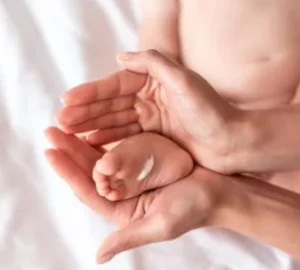We all know being a mother is not easy. No matter how many pregnancy guides you read, nothing can prepare you for the task ahead except actual experience, but knowing what you’re getting into doesn’t hurt either! There are some things that can’t be left to instincts and mother’s intuition, and you must have some theoretical knowledge about them beforehand.
Your baby’s feeding habits come under this category. As an adult, your diet is extremely different from that of a newborn baby and give you recall next to nothing of your early days, there is no way you can make an educated guess in such a scenario. Don’t worry; we are here to help!
Are you giving your baby enough milk?
There are a few telling signs that can function as indicators of your baby not getting enough milk. These are:
1) Your baby is not wetting at least 5 to 8 nappies or 5 diapers in the span of a day, that is twenty-four hours. The baby’s urine must be colourless, or extremely pale thus indicating he/she is drinking clean substances and odorless. Dark or strong-smelling urine signifies your baby is not getting enough breastmilk.
2) There has not been any growth in your baby’s weight or height. Babies grow very quickly, growing some millimeters each day, so if yours is less active and shows no signs of growth, consider increasing their diet to ensure they are getting enough proteins and vitamins.
3) Your baby is not soiling their nappies or diapers at least thrice each day. Moreover, their potty must be more runny than solid, as solid feces suggest the baby is not getting enough breastmilk. Thus, the more formed the feces are, the more breast milk your baby needs.
4) Your baby is restless and wants to feed constantly— listen to his/her call, in such a scenario.
A mother’s most important tool in guessing if her baby is being fed properly is— yes, the baby’s soiled diaper. We can imagine how vomit-inducing the idea must be to any new mother, but remember, our mothers and grandmothers have been doing this for ages for us and won’t hesitate to remind you of that. So put a handkerchief on your nose and dive in— your baby’s health may be at stake, Super Mom!
The first bowel movement a baby has releases the meconium present in the baby’s digestive tract before birth, but you will thankfully not be around to see it as this happens very early. By the second day of your child’s existence, the motions turn softer and lighter (but will still be a little dark), and as the days pass, the fecal matter changes its state in such a proportion.
The colour changes from greenish-brown to mustard yellow, and the matter becomes stickier and larger in volume. Use this guide to track any anomalies— should your newborn’s potty not follow this pattern, you may want to check if the baby is getting enough breastmilk. As your doctor for more guidance if the issue persists.
Similarly, your baby’s urine is also an indicator of its health. On the first day, the baby will pee only once, twice on the second, thrice on the third, and so on until the fifth day, where the baby may pee five times and settle into that final number. Less peeing definitely signifies a lack of breastmilk in your baby’s system, and you should immediately remedy that. There may be a copper tinge to the urine on the first few days, but if it remains after the fourth day, do consult a doctor.
Our mothers and grandmother come from simpler times whereby they did not rely on books or websites for guidance on raising a baby. However, it is important to remember that in those time, they were stay-at-home moms who were often guided by their own mothers and grandmothers. For the new, and especially young mothers, it is completely okay to seek guidance from every source you get, especially because third-hand information is so morphed and unreliable. All diaper brands will tell you they are the best choice for your baby— but what will help you find out?
Thus, we believe in guiding women through the beginning steps of motherhood just as they guide their toddlers through the beginning steps of life. After all, mothers know best!




